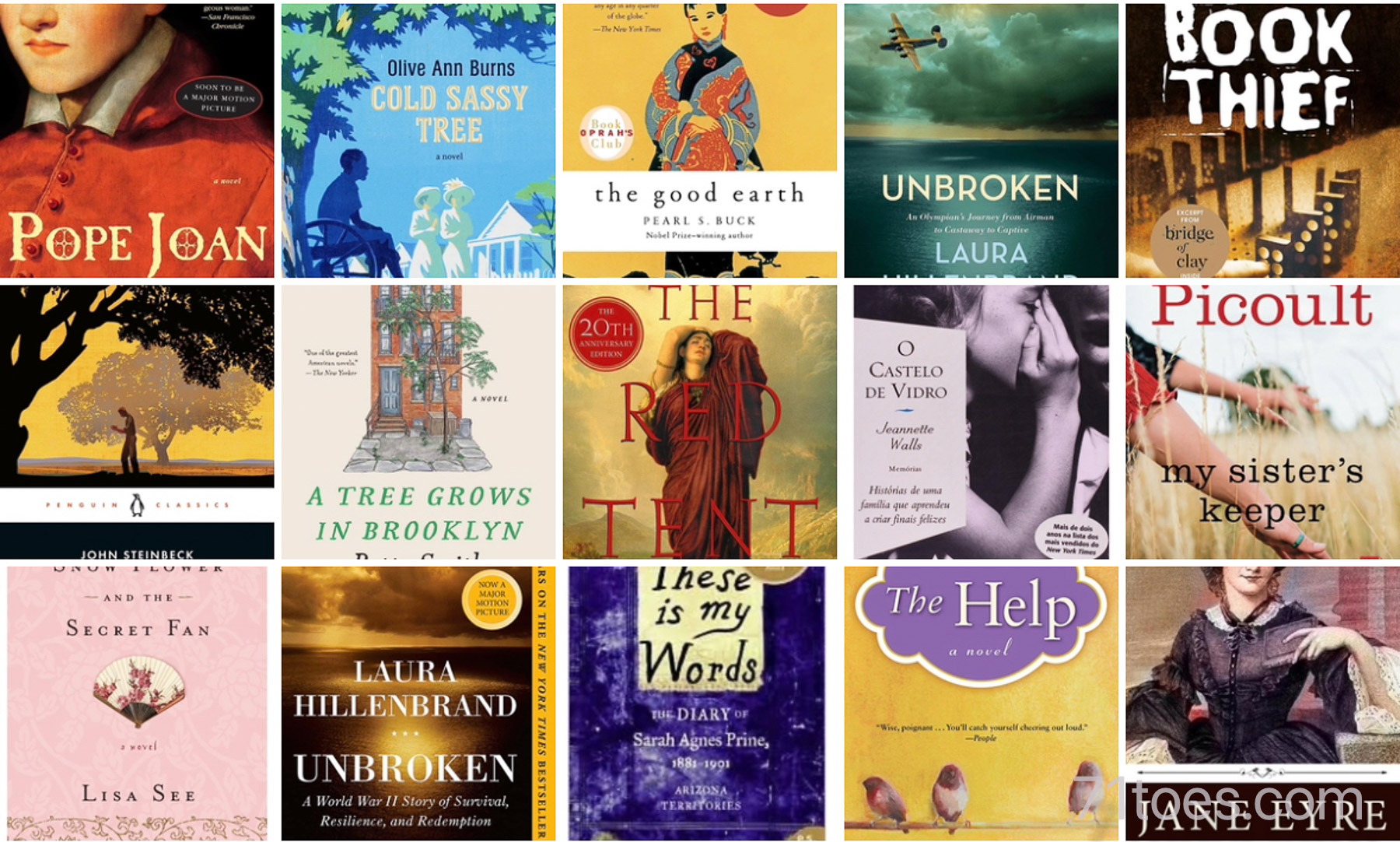Book Club Books: A Comprehensive Guide to Selecting Engaging Reads

Choosing the perfect book for your book club can feel daunting. The ideal selection isn’t just a good read; it’s a catalyst for stimulating conversation, diverse perspectives, and lasting engagement. This comprehensive guide delves into various aspects of book selection, drawing from diverse sources and offering strategies to ensure your next book club meeting is a resounding success. We’ll explore genre considerations, author analysis, thematic approaches, and the cultural impact of literary choices to help you curate a reading experience that resonates deeply with your group.

Understanding Your Book Club’s Dynamics
Before diving into specific titles, it’s crucial to understand your book club’s unique characteristics. Consider the following factors:
Genre Preferences:
Does your book club gravitate towards specific genres? Do you prefer historical fiction, contemporary novels, thrillers, mysteries, science fiction, fantasy, romance, literary fiction, or nonfiction? Understanding your group’s shared preferences is a fundamental step in selecting a book that will resonate with everyone. Some book clubs may even choose to dedicate a season or year to exploring a particular genre, allowing for a deeper dive into its nuances and complexities.

Reading Levels and Preferences:
A diverse book club might encompass readers with varying reading levels and preferences. Some members may prefer fast-paced page-turners, while others savor complex narratives and intricate prose. It’s important to find a balance that caters to the majority while still offering a thought-provoking experience for all. A mix of genres and writing styles can often strike this balance.
Thematic Interests:
Beyond genre, your book club might share a common interest in specific themes. Perhaps your group is passionate about social justice, environmental issues, historical periods, or personal development. Focusing on thematic alignment can enrich discussions and deepen engagement with the chosen text. Considering books that explore multiple interconnected themes can further broaden the scope of your conversations.
Strategies for Selecting Book Club Books

Several strategic approaches can streamline the book selection process and ensure a successful reading experience.
Author Study Book Clubs:
One effective method is to focus on a specific author whose works span various genres and reading levels. This approach not only introduces members to a wider range of the author’s styles but also facilitates discussions about their literary techniques, evolution as a writer, and recurring themes across their works. Exploring an author’s biography and historical context adds another layer of depth to the discussions.
Format-Based Book Clubs:
Another approach is to select books based on their format. This could involve focusing on verse novels, graphic novels, epistolary novels, or multi-formatted works. Focusing on format allows for in-depth analysis of the chosen medium and how it enhances the narrative. Discussions can explore the unique challenges and opportunities presented by each format.
Genre-Based Book Clubs:
This is a popular approach to book club selection. Choosing books within a particular genre allows for comparative discussions of plot structures, character development, stylistic choices, and thematic consistency within the genre itself. Exploring subgenres can further refine the selection and promote nuanced analysis.
Culturally-Focused Book Clubs:
This approach emphasizes books that reflect diverse cultural perspectives, exploring different societies, histories, and experiences. This can lead to engaging discussions on cultural differences, historical contexts, social issues, and broader understandings of different worldviews. The cultural background of the author, characters, or setting itself can serve as a valuable focus point.
Thematic Book Clubs:
This classic approach focuses on selecting books that share a common theme or topic. This approach enables rich, insightful discussions about a particular subject matter, encouraging members to explore different perspectives and interpretations. A wide range of themes can be explored, from social issues to historical events to personal growth, offering a great deal of flexibility for your book club’s interests.
Utilizing Online Resources:
Several online platforms offer curated book lists and recommendations tailored to book clubs. Websites such as Lbibinders.org, Goodreads, and others provide resources to assist in selecting books that align with your group’s preferences and interests. These platforms also provide access to reviews, discussions, and ratings, which help in making informed selections.
Examples of Engaging Book Club Books
The following examples demonstrate the diversity of books suitable for book club discussions, showcasing various genres, themes, and formats:
Non-Fiction:
Memoirs: When Breath Becomes Air by Paul Kalanithi, Educated by Tara Westover, Born a Crime by Trevor Noah. Memoirs offer intimate glimpses into the lives of others, prompting reflection on personal experiences and broader societal issues.
Investigative Journalism: Killers of the Flower Moon by David Grann. This genre offers the thrill of a page-turner while stimulating discussions about social justice and historical events.
Social Commentary: The Moment of Lift by Melinda Gates, Nomadland by Jessica Bruder. These books present insightful analyses of current social and economic issues, sparking debate and fostering broader understanding.
Fiction:
Historical Fiction: The Nightingale by Kristin Hannah, The Fountains of Silence by Ruta Sepetys, A Town Like Alice by Nevil Shute. This genre offers the opportunity to explore historical events through fictional narratives, sparking discussions about history, cultural context, and human experiences.
Contemporary Novels: Little Fires Everywhere by Celeste Ng, Evicted by Matthew Desmond, Where the Crawdads Sing by Delia Owens. These narratives offer a contemporary context that allows for discussions on relevant societal issues and personal experiences.
Literary Fiction: The Remains of the Day by Kazuo Ishiguro, A Gentleman in Moscow by Amor Towles. This genre facilitates discussions about literary techniques, character development, and complex themes.
Young Adult (YA) Fiction: The Hate U Give by Angie Thomas, If I Stay by Gayle Forman, The Disreputable History of Frankie Landau-Banks by E. Lockhart. These works offer relatable coming-of-age stories while addressing contemporary social and political issues.
Fantasy and Science Fiction: Titles from authors like Brandon Sanderson, N.K. Jemisin, and Ursula K. Le Guin offer worlds of imaginative storytelling and allow for discussions about allegory, symbolism, and the power of imagination.
Beyond the Book: Enriching Your Book Club Experience
The success of your book club extends beyond simply selecting a compelling book. Consider the following elements to elevate your meetings:
Discussion Prompts: Prepare open-ended questions to guide discussions, encouraging diverse perspectives and engaging dialogue.
Food and Drinks: Curate refreshments that complement the book’s theme or setting, enhancing the overall experience.
Creative Activities: Incorporate creative activities, such as writing prompts, artwork, or dramatic readings, to broaden engagement.
Guest Speakers: Invite authors or experts to share insights and contribute to the discussion.
By thoughtfully considering your book club’s dynamics, employing strategic selection methods, and incorporating enriching elements, you can transform your book club meetings into a rewarding and intellectually stimulating experience for everyone involved. Remember, the best book club books are those that spark lively conversations, foster deeper connections, and leave a lasting impact on your group’s shared reading experience.